Corporate social responsibility (CSR) is becoming increasingly vital for businesses aiming to make a positive impact on society while enhancing their reputation. Companies are now realizing that their actions extend beyond profit margins and can shape communities, influence economies, and promote sustainability. By engaging in CSR initiatives, organizations not only contribute to social good but also foster a sense of loyalty among consumers and employees alike. Curious to learn how to craft a compelling letter that reflects your company's commitment to CSR? Read on!

Purpose and Mission Alignment
Corporate social responsibility initiatives focus on enhancing community welfare, promoting environmental sustainability, and fostering ethical business practices. Organizations like the United Nations (with its Sustainable Development Goals) emphasize this alignment between corporate missions and societal needs. For example, a company's mission could integrate renewable energy solutions, addressing climate change impacts while boosting its brand reputation. Engagement in local community projects, such as food drives or educational programs, demonstrates commitment to social values. Measurement tools like the Global Reporting Initiative (GRI) provide standards for assessing corporate performance in social responsibility, enhancing transparency and accountability to stakeholders.
Community Engagement and Partnerships
Corporate social responsibility (CSR) initiatives aimed at community engagement foster relationships between businesses and local communities, enhancing social welfare. Strategic partnerships with nonprofits, charities, and community groups often provide mutual benefits, including resource sharing and skill enhancement. Programs such as mentorship for youth, environmental clean-ups, and health awareness campaigns encourage employee volunteering and investment in local development. These efforts can lead to positive brand perception and increased customer loyalty. Businesses that prioritize community involvement frequently report improved employee satisfaction, as staff feel a sense of pride in contributing to meaningful local causes. Building sustainable partnerships requires continuous communication and alignment with community needs and goals.
Sustainability and Environmental Initiatives
Corporate social responsibility (CSR) in sustainability emphasizes actions taken by businesses to reduce environmental impact. Companies, such as global giants like Unilever or Patagonia, implement initiatives promoting sustainable practices, reducing carbon footprints, and utilizing renewable resources. For instance, solar energy projects can lower greenhouse gas emissions, while waste reduction programs focus on recycling efforts within their supply chains. Events like Earth Day (April 22) provide platforms for awareness and community involvement. Certification programs, such as LEED (Leadership in Energy and Environmental Design), recognize buildings that prioritize energy efficiency and sustainability, highlighting a commitment to environmental stewardship. Collaboration with organizations such as the World Wildlife Fund enhances initiatives, drawing attention to crucial habitats and endangered species conservation.
Ethical Standards and Compliance
Corporate social responsibility (CSR) emphasizes the importance of ethical standards and compliance in business practices, particularly in multinational corporations like Nestle. Adoption of comprehensive compliance programs ensures adherence to laws, regulations, and ethical norms across global operations. The adherence to the United Nations Global Compact principles promotes sustainable business practices in areas such as human rights, labor rights, environment, and anti-corruption. Regular training sessions, such as those held quarterly, instill a culture of integrity among employees, fostering an environment of transparency and accountability. Additionally, third-party audits play a crucial role in evaluating the effectiveness of compliance measures, providing feedback for continuous improvement. Public disclosure through sustainability reports enhances stakeholder trust, ensuring alignment with best practices in corporate governance.
Impact Measurement and Reporting
Corporate social responsibility (CSR) initiatives require thorough impact measurement and reporting to evaluate effectiveness. Organizations such as Global Reporting Initiative (GRI) provide standardized frameworks for measuring social, environmental, and economic impacts. Metrics often include quantitative data (e.g., number of beneficiaries, carbon footprint reduction percentages) and qualitative insights (e.g., community feedback). Regular reporting is crucial for stakeholders, highlighting achievements, challenges, and future goals. Tools such as surveys and case studies allow for comprehensive evaluation of projects in various sectors, ensuring transparency and accountability. Effective impact measurement ultimately guides strategic decisions, enhances stakeholder engagement, and supports continuous improvement in CSR efforts.
Letter Template For Corporate Social Responsibility Samples
Letter template of Corporate Social Responsibility Compliance Confirmation
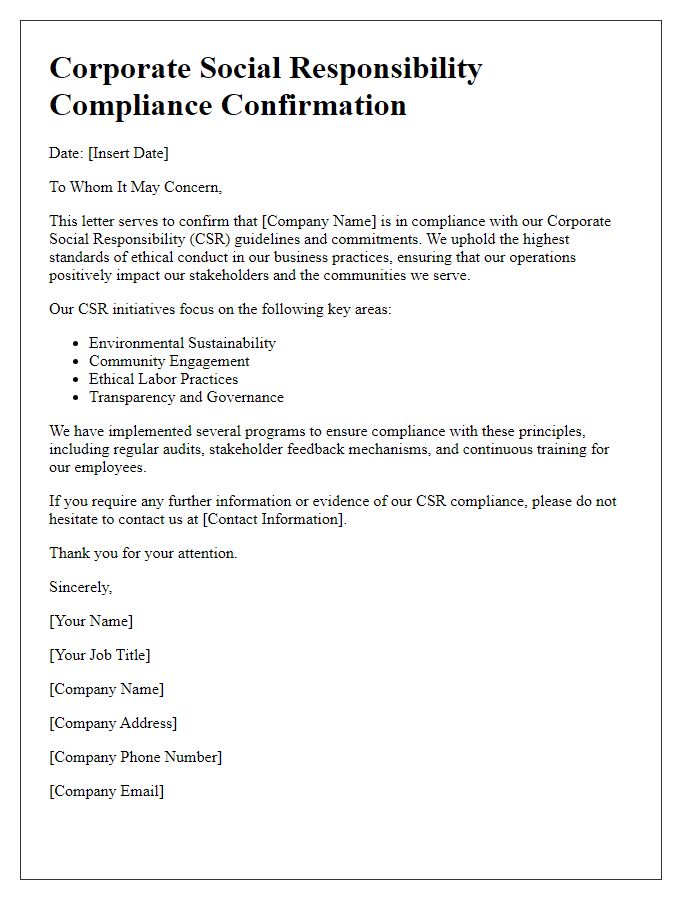
Letter template of Corporate Social Responsibility Donation Acknowledgment


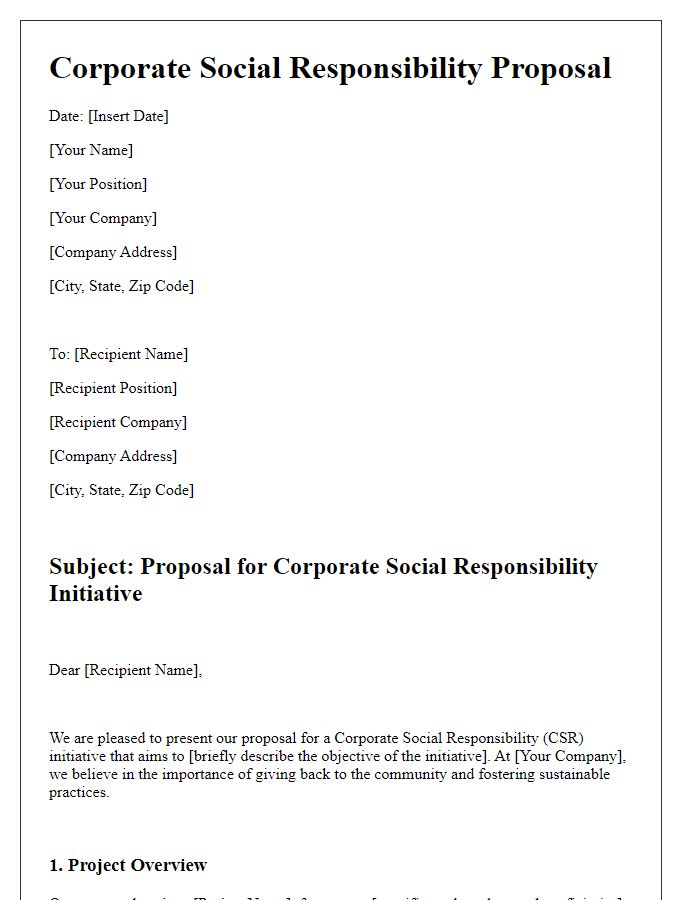
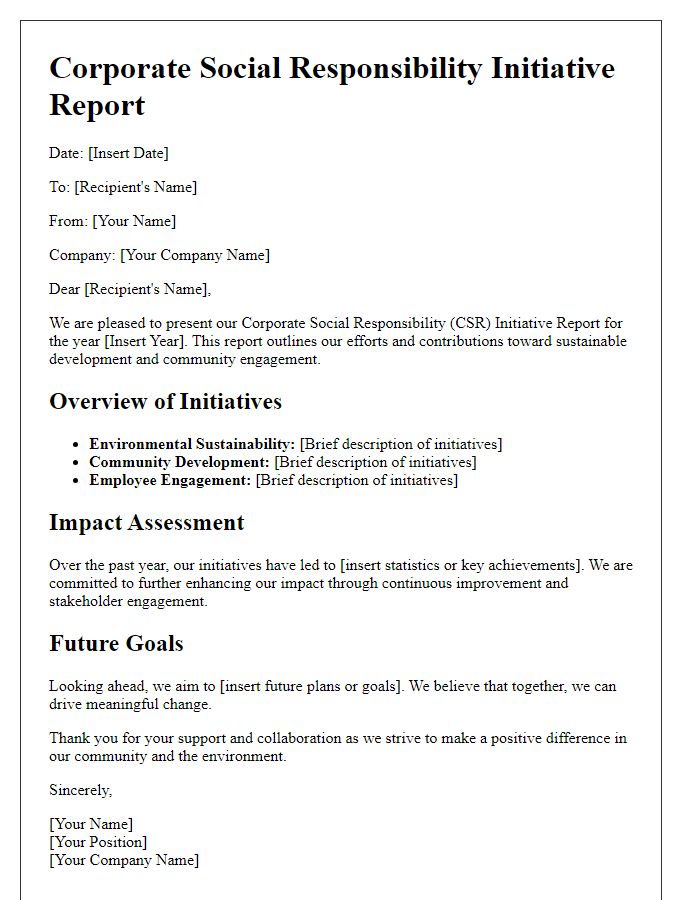

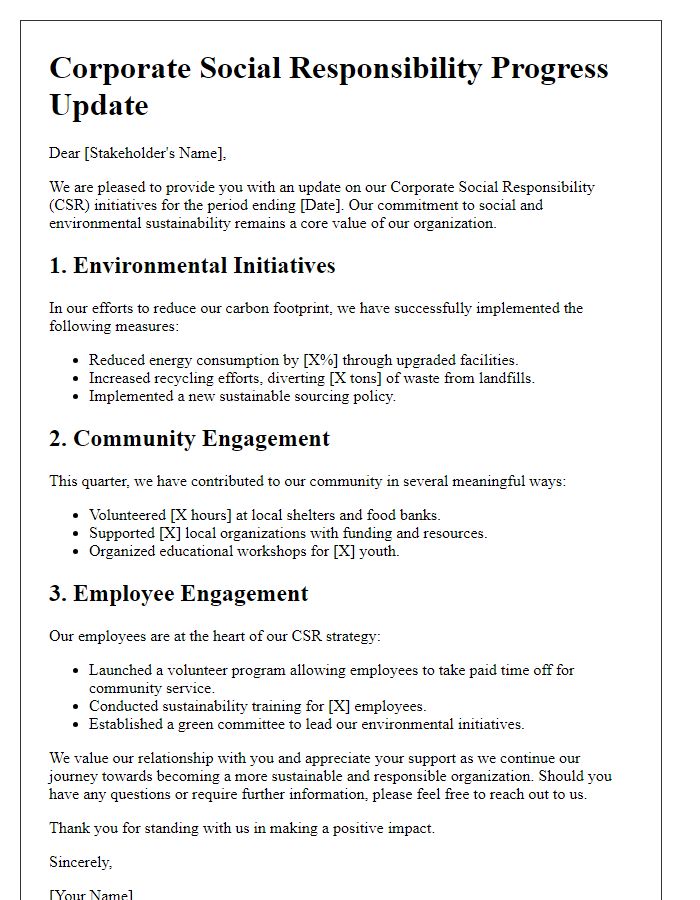
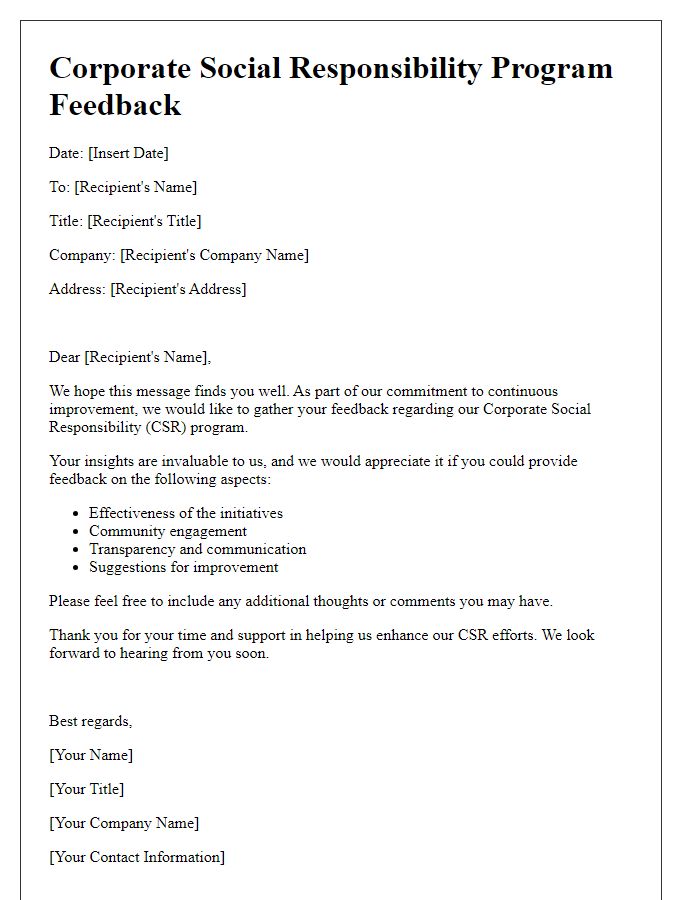
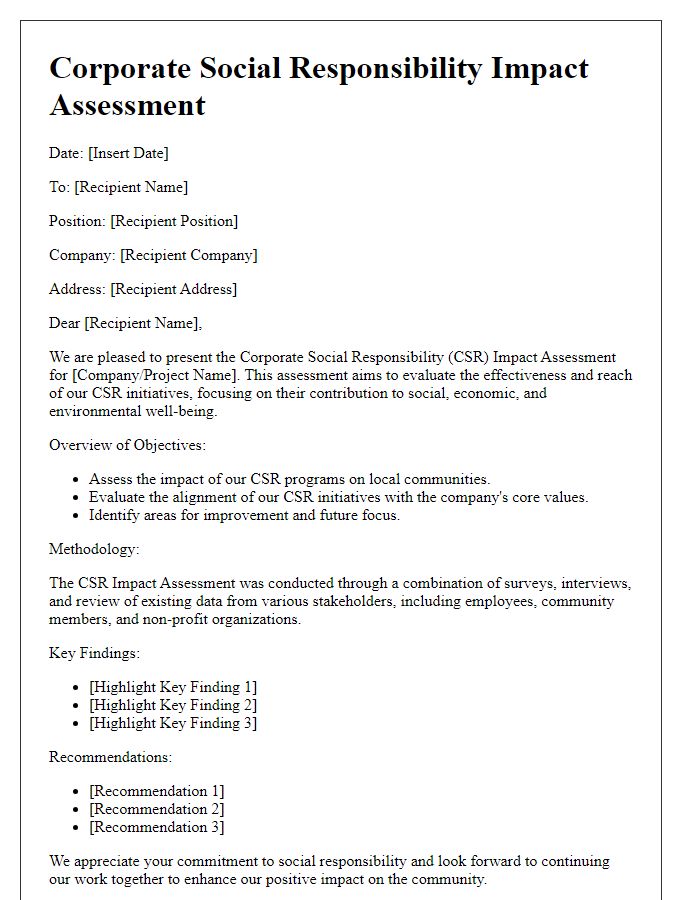

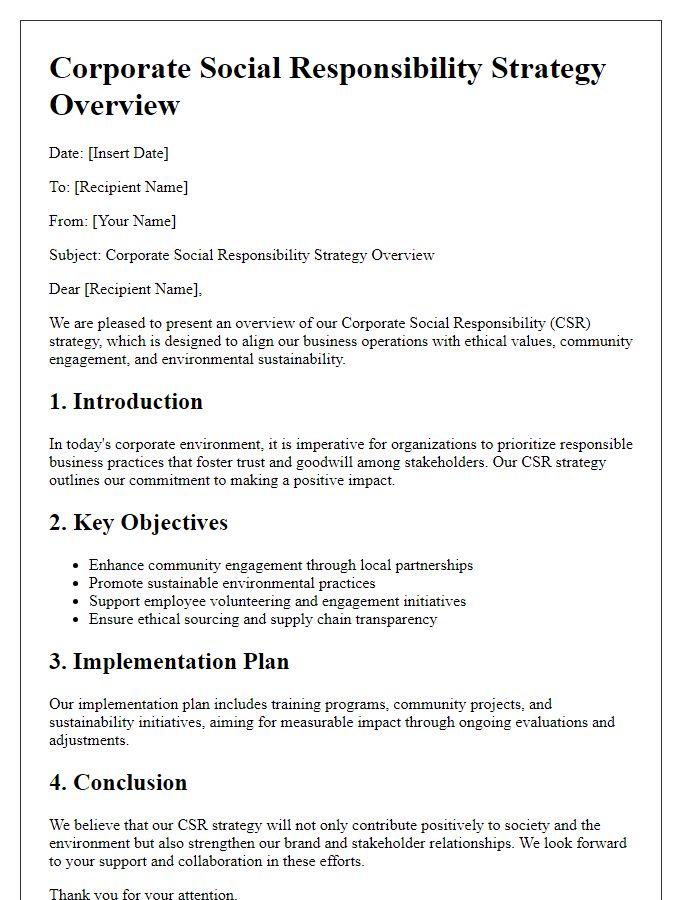


Comments